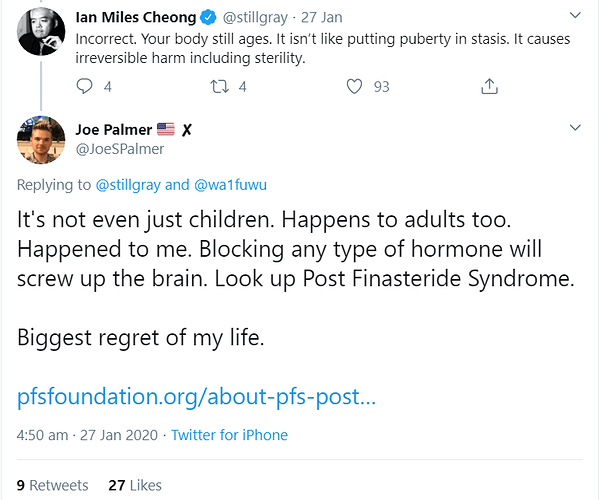Has there ever been a safety study for finasteride done on healthy, young men (18-35) that do not have bph, and are taking this medication for the purpose of baldness? I ask because Every study I find is either retrospective, on PFS sufferers, or on older patients or BPH sufferers (who i would expect either have ED already, or are more predisposed to attribute any new ED symptoms to their pre-existing conditions than report them as new since finasteride to the study.)
If not, can we work toward creating this study? It would be so cheap on a grand scale to get 1000 young men who see keeps or roman advertisements, and offer to provide medication for free, and see if they report side effects after taking the drug for a week and stopping, a month, 6 months, a year, and stopping and measuring consistently for a year after they take it. There is money donated to this cause, and I could be missing some basic studies, but i have read so many and honestly not found a single one. I dont know about previous periods of propecia marketing, but In this day and age, it should be so easy to find young men who are going to take this drug anyway, and will do so for a little bit of money, and to ask them to report any changes while on the drug and after stopping. Maybe some won’t want to stop, but if we get enough people to sign up, like 5-10 thousand, if 1/10th quit (which sounds reasonable) that is enough to form a study based on young men who stopped finasteride and were otherwise healthy beforehand. I honestly attempted suicide for the first time last week, and had police come, and will likely do so again soon. I would like to see this study if it exists, or see it begin to come to fruition if it doesn’t before i succeed


